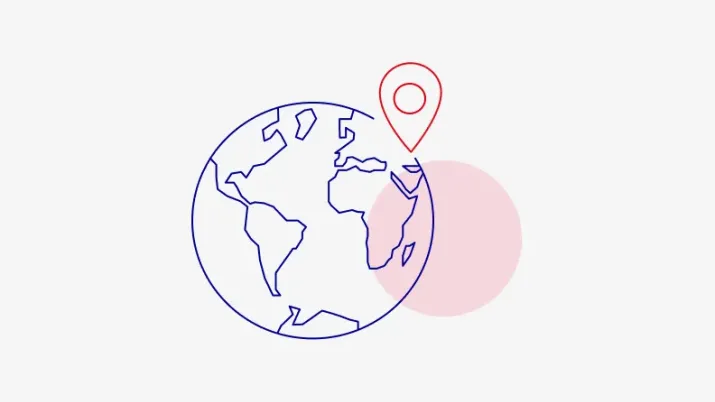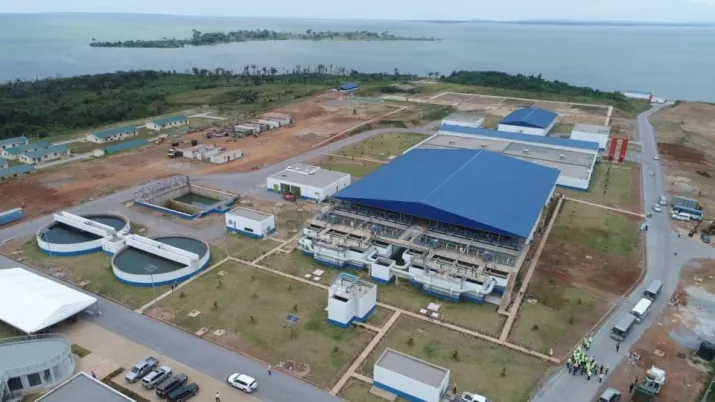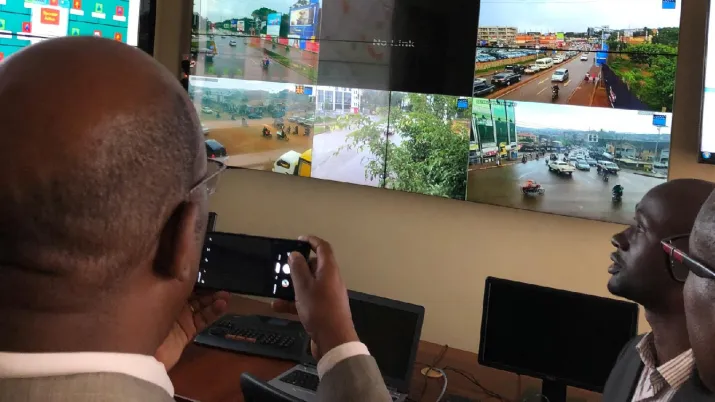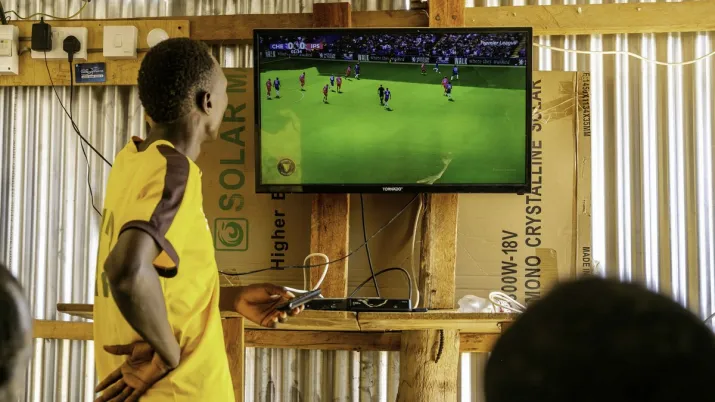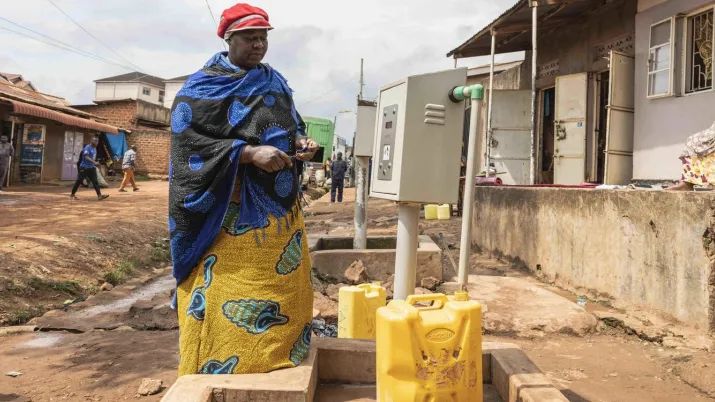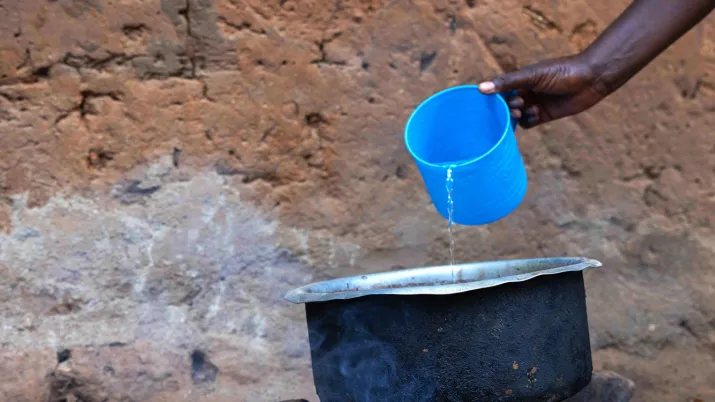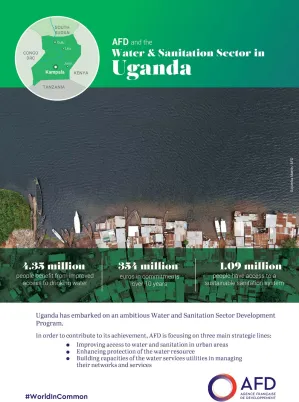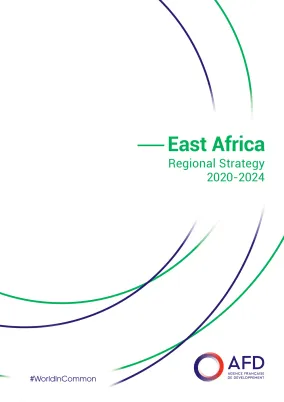Share the page
Uganda
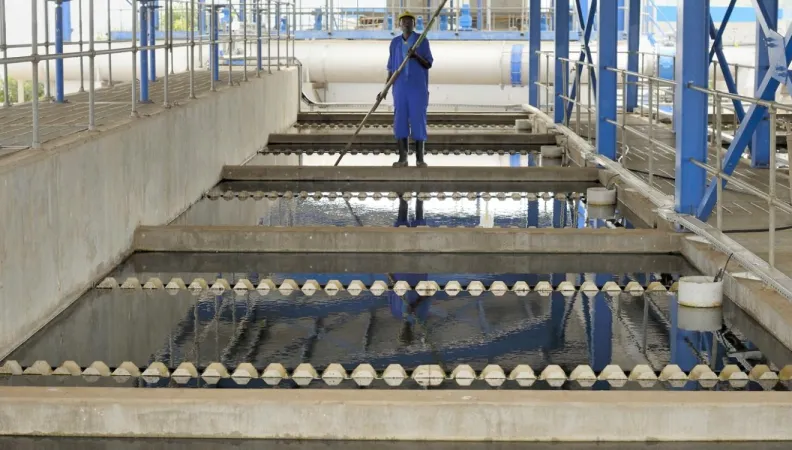
Uganda is a landlocked country in East Africa that has experienced steady growth over the past decade and a significant reduction in poverty levels. With a GDP per capita of USD 1,211, the country remains classified among the Least Developed Countries.
To meet the demands of a rapidly growing population and diversify its economy, Uganda must create jobs and invest in quality infrastructure, while also addressing the challenges posed by climate change.
AFD supports the country in advancing progress across these priority areas.
Context
Uganda has a population of 46 million people (2024 census), including two million refugees. Its economy remains largely agriculture-based, although the industrial sector and services are increasingly dynamic. Poverty has fallen significantly over the past 20 years, yet it still affects roughly one-third of the population. Demographic growth is among the highest in the world, with an average of six children per woman and nearly 600,000 young people entering the labor market each year.
Uganda has demonstrated strong economic performance, recording steady growth of around 6% annually over the past decade (+6.3% in 2024/25, with 7% projected for 2025/26). The government continues to invest in priority sectors such as infrastructure, agriculture, tourism, oil and gas, and human capital development.
Despite this momentum, Uganda faces two major challenges: rapid population growth and the associated opportunities for urbanization, job creation and value addition; and the need to build resilience to climate change through sustainable development strategies. To help address these structural challenges, AFD supports the country in key areas including water supply and sanitation, energy, urban development, and employment creation through financing for the economy and the advancement of green finance.
Through its dedicated funding window, AFD also supports NGOs operating in Uganda, particularly through multi-country initiatives focused on biodiversity protection, inclusive finance and health. Thanks to competitive calls for proposals, Ugandan organizations also receive support for entrepreneurship, as well as projects in Sport & Development and the Cultural and Creative Industries.
AFD has been active in Uganda since 1993, notably through its private-sector arm, Proparco.
Activities in Uganda are overseen by AFD’s East Africa Regional Office based in Nairobi.
Our approach
AFD and Uganda: supporting inclusive, job-creating and environmentally friendly growth
Uganda’s rapid demographic growth – especially in urban areas – poses major challenges for ensuring reliable access to safe drinking water for the population. Access to adequate sanitation remains extremely low, creating significant public health risks as well as environmental and biodiversity pressures.
With €400 million in ongoing projects, the water and sanitation portfolio represents more than 50% of AFD’s activity in Uganda.
AFD supports the following projects:
- Improving water and sanitation services in Greater Kampala, including the construction of the Katosi Water Treatment Plant (160,000 m³/day, inaugurated in July 2021, now undergoing expansion studies), the Nalukolongo Faecal Sludge Treatment Plant (commissioned in October 2024), the extension of the water distribution network in northern Kampala (120 km), and the installation of 2,600 prepaid standpipes and 64 public toilets.
- A project in the southwest to increase water supply to the cities of Mbarara and Masaka, including the construction of new treatment plants (on the Kagera River and Lake Victoria) and transmission pipelines.
- A water and sanitation project in rural Isingiro District (300,000 inhabitants) and for refugees in Nakivale and Orushinga (200,000 refugees), including a water distribution network and sanitation facilities. The portion of financing dedicated to refugees is funded by a grant from the European Union, implemented by AFD.
A feasibility study is also underway to develop water and sanitation infrastructure in the cities of Fort Portal, Hoima and Lira.
Uganda is one of the African countries with the lowest electricity access rates: as of end-2024, 60% of the population has access to electricity, but only 28% is connected to the national grid, despite the country’s strong hydroelectric potential.
AFD finances projects to:
- Secure renewable energy production capacity by rehabilitating the Kiira–Nalubaale hydroelectric power plant (380 MW), Uganda’s first hydropower station, co-financed with the European Union and the European Investment Bank.
- Strengthen Uganda’s transmission network through the construction of the Masaka–Mbarara high-voltage line, co-financed with KfW Development Bank.
- Expand access to electricity, in partnership with the European Union, through rural grid extensions and household connections, with 40,000 connections completed (end-2024) and 40,000 more planned.
- Promote clean cooking solutions, helping reduce charcoal use, improve energy efficiency, and protect both public health and the environment.
Job creation and private-sector development are core priorities of the Government of Uganda under Vision 2040.
By providing credit lines and technical assistance to public banks, AFD indirectly supports job creation for women entrepreneurs, young people, and rural populations through improved access to finance:
- Support for smallholder farmers and cooperatives via Pearl Bank and Uganda Development Bank (UDB),
- Support for 1,000 young and women entrepreneurs through Pride Bank,
- Support for hundreds of refugee entrepreneurs via Mercy Corps, Ugafode and VisionFund.
AFD’s private-sector arm, Proparco, also operates in Uganda through commercial loans, equity investments and guarantees to stimulate private investment.
Due to its reliance on rain-fed agriculture and strong demographic pressure on natural resources, Uganda is among the countries most vulnerable to climate change.
All AFD projects, particularly in the water and energy sectors, systematically integrate climate considerations into their design.
AFD also supports Ugandan authorities and the private sector in addressing climate challenges by:
- Integrating climate risks into project design in all AFD-funded water and energy operations,
- Promoting climate-resilient, green agriculture through credit lines and technical support for smallholder farmers,
- Supporting a shift to clean cooking and a gradual move away from charcoal,
- Promoting green finance and climate-informed project analysis through technical assistance to the National Planning Authority.
In the field
Below, find the country's projects, news, publications, and contact details in one click.
Projects
News & Press Releases
East Africa poised for renewable energy boost with Kenya-France Geothermal Agreement
Published on September 4, 2025
Publications & Media
Key figures
-
€800 million active portfolio
-
Over 2 million people have gained access to safe drinking water since 2021
-
400,000 people have gained access to electricity

